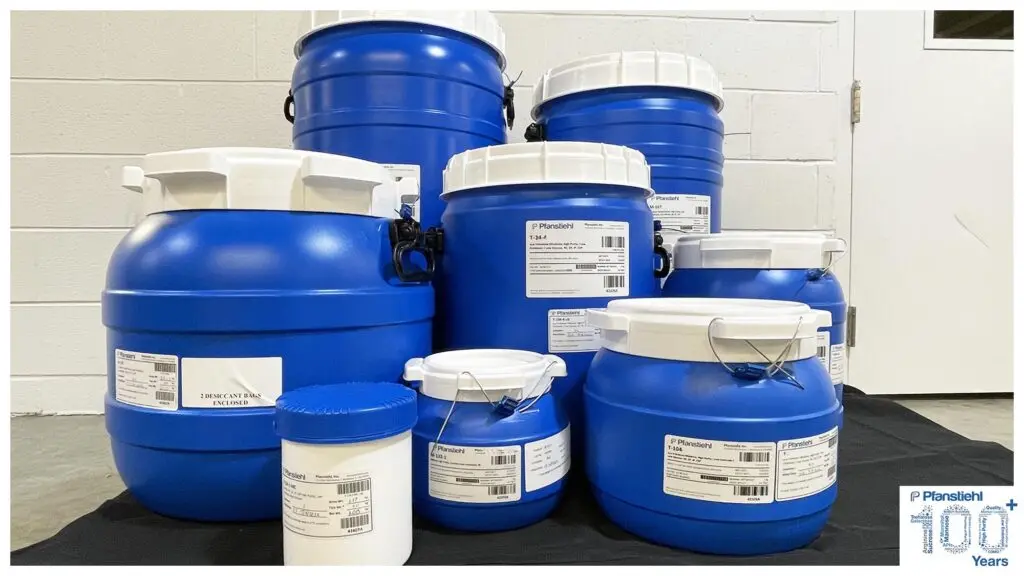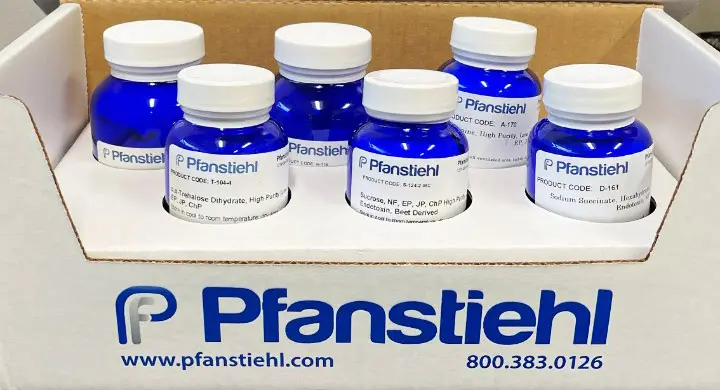Trehalose is a non-reducing disaccharide consisting of two glucose molecules linked by an α, α–1,1 bond. Pfanstiehl Brand, High Purity Low Endotoxin Trehalose is used in the biopharmaceutical industry to stabilize proteins, lipids, and carbohydrates throughout the formulation and freeze/thaw life cycle of therapeutics. It is also widely applied as a key component in cryopreservation/freeze media to stabilize cell membranes and improve the recovery and robustness of cells used for bioproduction and cell therapy.
The stabilizing benefits of trehalose include but are not limited to:
• Monoclonal Antibodies (mAbs)
• Fusion Proteins
• Antibody Fragments (fAbs)
• Peptides
• Stem cells
• Vaccines

High Purity – Low Endotoxin – Low Metals – Parenteral Grade
Pfanstiehl Brand Trehalose is available as NF (National Formulary), EP (European Pharmacopoeia), JP (Japanese Pharmacopoeia), and ChP (Chinese Pharmacopoeia). Pfanstiehl also holds a US DMF for the Trehalose (T-104-4) product.
| Product Description | Product Code | CAS Number |
| α, α-Trehalose Dihydrate, High Purity (Low Endotoxin), NF, EP, JP, ChP | T-104-4 | 6138-23-4 |
| α, α-Trehalose Dihydrate, High Purity / Low Endotoxin / Low Glucose, NF, EP, JP, ChP | T-104-4-LG | 6138-23-4 |
| α, α-Trehalose Dihydrate, Inhalation Grade, HPLE-LM, (High Purity, Low Endotoxin-Low Metals), NF, EP, JP, ChP | T-104-4-IG | 6138-23-4 |
Available Package Sizes: 1kg, 5kg, 10kg, 25kg, 50kg
